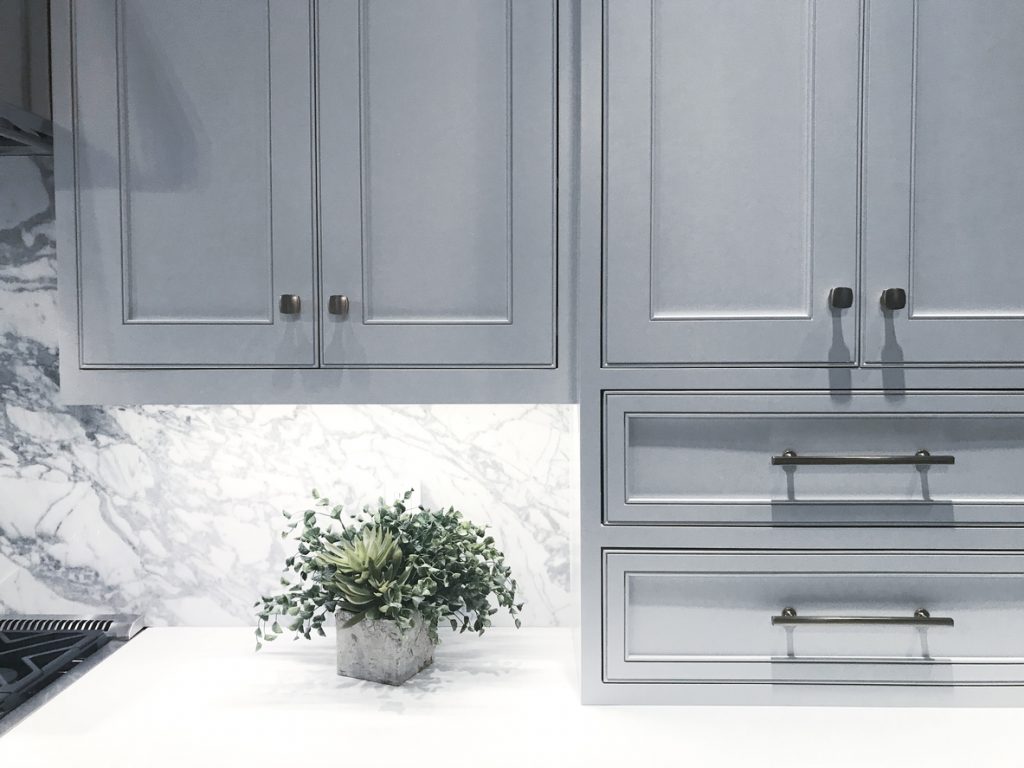Laminate cabinets have long been a popular choice for bathroom and kitchen cabinets. Not only are they a fairly inexpensive choice, but they also provide several different colour and style options.
However, when the veneer starts to crack and peel, you’ll find your space looking a little sadder and older.
Fortunately, the process to fix up your cabinets is fairly simple and cost-effective. Let’s take a look.
Steps To Repairing The Veneer on Your Particle Board Cabinets
Depending on the extent of the peeling and damage, there are two paths to take.
- Glue It Down
Taking a pair of pliers, slowly and carefully pull the peeling laminate away from the particleboard. Don’t peel back more than necessary, just until you feel resistance and have reached the veneer that is still firmly attached.
Using a paintbrush, apply contact cement to both the particleboard and the underside of the veneer. Ensure you continue to pull the veneer away from the particleboard, as you don’t want the cement to touch until it’s dry.
Once the contact cement has dried, push the veneer against the particleboard. Take the time to smooth out the veneer, as you want to avoid any bubbles or misalignments.
Finally, use a clamp to hold the veneer and particleboard together while it sets. If you don’t have a clamp, placing something heavy on top will work as well.
- Replace The Veneer
If you find that the peeling section of the veneer is too large to simply be glued down, you may need to replace the entire front.
Gently peel the veneer off the particleboard. If there are sections that are still attached quite firmly to the particleboard, using a heat gun will help loosen that bond.

Measure and cut the amount of laminate you will need for your cabinet door. It’s okay to measure a little larger, as you can always sand down the edges once it’s on the particleboard.
Add contact cement to the particleboard and the backside of the veneer. Once it dries, carefully push the veneer onto the particleboard. Using your hand or a roller, smooth out any swelling or bubbles, and ensure the entire surface is now covered.
Clamp the veneer to the particleboard while the cabinet door dries. If you don’t have enough clamps, or any at all, placing something heavy on top will work just as well.
Once everything is sealed together, sand out the edges of the cabinets if you feel that is needed.
Maintaining the appearance of your particleboard cabinets truly makes a difference in the feel of your home. Hopefully, you find this to be a simple and straightforward way to keep your cabinets looking brand new!
Handhills is a cabinet maker and manufacturer serving central Alberta. We specialize in custom cabinet design and installation, closet design, bathroom vanities, bookcases, custom entertainment centers, kitchen cabinets, shelving, MDF cabinet doors, cabinet parts and more. Send us your measurements and get started with custom cabinets from Handhills. Call the best cabinet maker in Calgary today on (403) 910‐2373 or send an email to [email protected].


